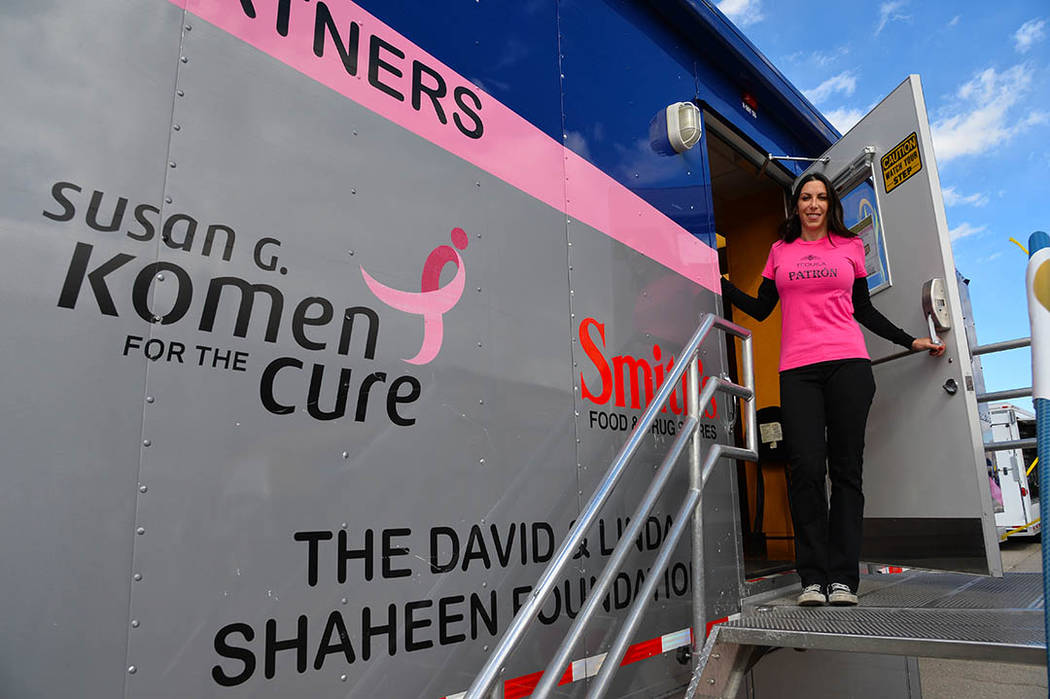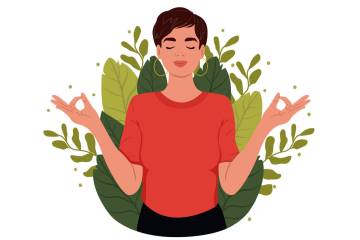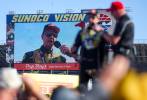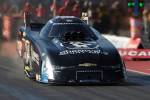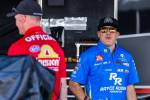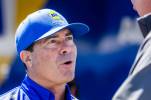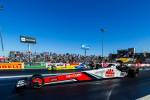Day at the races could change your life
During this weekend’s NHRA Toyota Nationals at the Las Vegas Motor Speedway, professional race car driver Alexis DeJoria will bring back her free mammogram program Friday through Sunday.
“Mammograms are really important and sometimes scary, and our program has helped a lot of women who wouldn’t otherwise have gotten or been able to get a mammogram,” DeJoria said.
Any female ticketholder over the age of 40 is welcome to stop by the Mammovan and get a free screening. No health insurance, appointment or referral is required. But be prepared for a fun time while you wait.
“It’s really been a lot of fun,” DeJoria, 40, said. “It’s a lot more fun than going to a doctor’s office. And it’s a lot less scary.”
The Mammovan also will be parked on Fremont Street during NHRA Fanfest on Thursday, prior to the race weekend. Free screenings will be available during Fanfest as well. The program hopes to reach a milestone of 500 free screenings during this year’s NHRA event.
“As one of the few females in the (motorsports) industry, I felt I should do something,” said DeJoria, whose impressive professional career includes being the first woman to compete in 100 Funny Car races and the first to break the 4-second barrier in a Funny Car.
During the month of October, DeJoria shifts her focus from fighting for the NHRA Drag Racing Series Championship to fighting the battle against breast cancer.
“Every year we paint our car pink and wear pink to support the month of breast cancer, but we so wanted to do something more proactive on the side of being part of the solution, being more productive for women,” said DeJoria, who married TV personality and motorcycle enthusiast Jesse James in 2013.
Her goal is to raise awareness and provide a proactive, affordable service to female fans in a fun, stress-free environment.
And it appears to be working.
“We are looking like we’ll make our goal of 500,” Dejoria said, noting they will more than likely pass that goal at the Speedway this year.
The idea came together quickly and has grown since its inception five years ago. After conducting some research, DeJoria found Nevada Health Centers’ mobile mammogram. She contacted them and asked if they would come out to the race track.
“They thought it was a great idea,” DeJoria, 40, said. “I can’t say enough good things about Nevada Health Centers.”
The cost is covered through donations and DeJoria. This is the only major sports franchise in the country that brings a mobile mammography unit out to an event and offers free mammography screenings to any females attending the event, DeJoria said.
“It was unusual, but it seemed like it would be a good fit for (female) race fans,” she said.
She was originally concerned that the turnout would be low.
“I thought maybe women would be shy, maybe embarrassed to have a mammogram at the races,” DeJoria said.
But that wasn’t the case.
“Every year it’s gotten bigger and bigger, mostly through word-of-mouth,” she said. “The numbers just keep rising every year, and hopefully that is bringing down the number of deaths.”
In fact, race fans from other cities fly into Las Vegas to attend the NHRA event and pop in for their free mammogram. The program also has attracted those who would have otherwise missed a race and a mammogram.
“We’ve had women come out who have never been to a drag race before, but they found out about the van and that they don’t need insurance and don’t have to pay anything for it,” DeJoria said. “It’s been incredible. For the price of a ticket to the race, they can get a free mammogram.”
The availability and affordability of the Mammovan have changed lives.
Nevada native Donny Rithen experienced her first car race and mammogram two years ago when her best friend, Julie Bowden, pushed her to confront her fears.
“My mom had breast cancer and my aunt,” said Rithen, a cocktail waitress at a local casino. “Julie had been asking me to get checked for years.”
Rithen had been worried about the actual physical mammogram screening, as well as the results.
“I was afraid of finding out if something was wrong,” Rithen said. “But I knew it was a good idea. Getting a mammogram at a race track seemed a lot less scary than going to a clinic.”
And it was.
“We had the best time,” Rithen said. “I forgot I was there for the mammogram, and then we went and did that (mammogram). Just like that, it was over. It was a huge relief.”
Her mammogram results were negative for breast cancer, but the resulting upshot is that Rithen is no longer afraid of the screening or the results.
“I’m a lot more educated because I stopped being afraid,” Rithen, 44, said.
In fact, she is now looking forward to returning for a mammogram at the race track.
“It’s fun,” Rithen said. “There is a feeling of celebration when you go out there, of getting something important done. The ladies (in line) are fun to hang out with while you wait.
“They answer questions, take the unknown out of the equation. They have so many stories of survival from getting (early) detection. It’s really uplifting.”
That is exactly what DeJoria was hoping for when she began the Mammovan movement in 2012.
“There is a lot of fear in not knowing what the procedure is going to entail or feel like,” said DeJoria, who plans to retire from racing this year. “It’s not as bad as it seems. We help them get through that.”
From fans to racers themselves, the Mammovan has served a few thousand people at the annual Speedway location alone over the last few years.
“It’s brought a lot of people together,” DeJoria said. “They are getting something done they might normally have never even thought of getting done, and it can save their life.”



